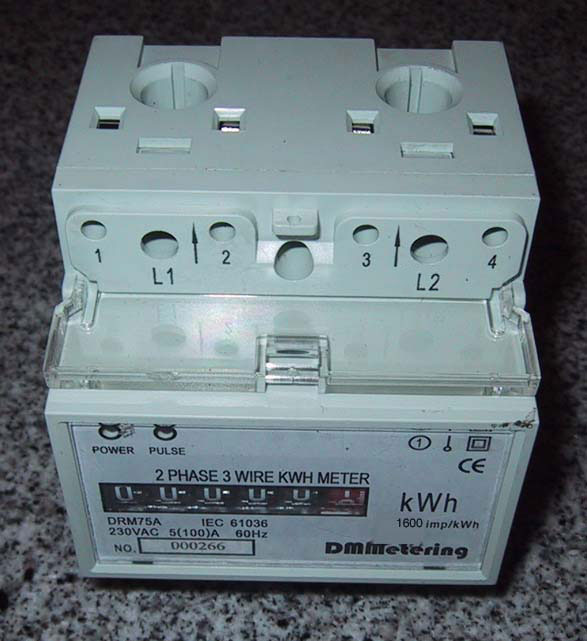Q: How do you like the geothermal heat pump?
A: I love it. It's quiet (No outdoor air source heat exchanger / fan) and efficient. The outdoor heat exchanger needs to be frequently cleaned. Even so they quickly corrode and will never have the efficiency of a new unit.
Q: Is the weather severe enough in your area to warrant the extra cost of a ground source heat pump?
A: Normally homeowners get talked into oil, propane, or resistive fired boilers for radiant floor heat. I am told that ordinary air-source heat pumps can not provide hot enough water for radiant without frequently defrosting. Most radiant floor systems around here are put in by plumbers that tell the owner that the heating cost will be low. I don't believe this, the cost to heat via radiant floor is not going to be significantly lower than forced air heat. Geothermal (also called ground source) heat pumps have a COP (coefficient of performance) of 3 to 3.5. This means that it will cost you 3 to 3.5 times as much to heat your home with resistive heat. Since propane is more expensive than electricity, the cost is even higher.
Electricity, at the current flat rate price of $.062/kWh in this area is cheaper than any other area that I know of. Even at this low cost it's likely that you'll save $150-$200 / month in heating costs (3,300 sq. ft. home) during the cold months.
The incremental cost for ground source is about $6,000. This may pencil out or not, depending on how one views the cost of money.
Two things to consider:
Rates in this area are going up, especially gas and oil. Electrical rates
could double in two years.
Cost should not be the overriding factor when it comes to our environment. We need to dramatically reduce carbon gases and reduce our dependency on foreign oil.
Update: I now have a
revenue grade power meter on the heat pump. It appears that with:
Outdoor temperature: 39F
Indoor temperature: 68F
Sunlight: None, completely overcast.
Electrical cost is $.062 / kWh
it will cost about $46 / month to heat the home. I believe that with an
ordinary amount of sunlight a typical winter month it will cost under $40.00.
I estimate that it will cost less than $300 / year to heat 3,300 sg. ft.
Update: The highest heating bill during the coldest winter
month was $40! (This is just for the heating portion of the bill)
Q: How do you like the radiant floor heating?
A: I can't imagine any other way. Especially tile floors. During a down time we heated our home with the propane fireplace. The home was warm, but the floors were very cold. Also, I recommend Roth radiant floor heat vs. gypcrete. They have less thermal mass and give you an extra R8 of floor insulation. In addition, you aren't heating the subfloor. There are some important things that I learned about the installation of Roth floor heat. If you're considering Roth floors, please contact me, I can offer some helpful tips.
In addition, with radiant heat you don't have the noise of an air forced system.
Q: You say you aren't happy with your
GSHP contractor. Who will install it?
A: For GSHP you will
have to go out of the area. Air-Flo in Sequim knows how to do GSHP, but they're
too busy to do it. They do know what they are doing though.
If you want the very best, call:
John Farlow
Thermal Technologies
13405 27th Street SE
Snohomish WA 98290
(425) 359-8681 (cell phone)
Unlike most HVAC contractors, John is dedicated to ground source applications and has installed hundreds of them. Some have been huge systems. He even installs these systems on houseboats that collect geo heat from the body of water.
jmfarlow (at) aol (dot) com
He doesn't read his email often.
I think the very best GSHP equipment is
Millbrook Hydron, made at a Hutterite colony in South Dakota.
Stainless Steel, highest COP, lifetime warrantee.
I have WaterFurnace, which is working
well.
Q: How are you measuring the power consumption
of your electrical appliances?
A: For my heat pump & water heater I use a DRM75A kWh meter.
It sends out a number of pulses per kWh which I read via
a 1-wire device. I purchased them on EBay from dbrouwer.
This is a small din-rail device. YOu just run the power wires through it,
two small set screws penetrate the wires to measure the voltage. A current
transformer measures the current.
